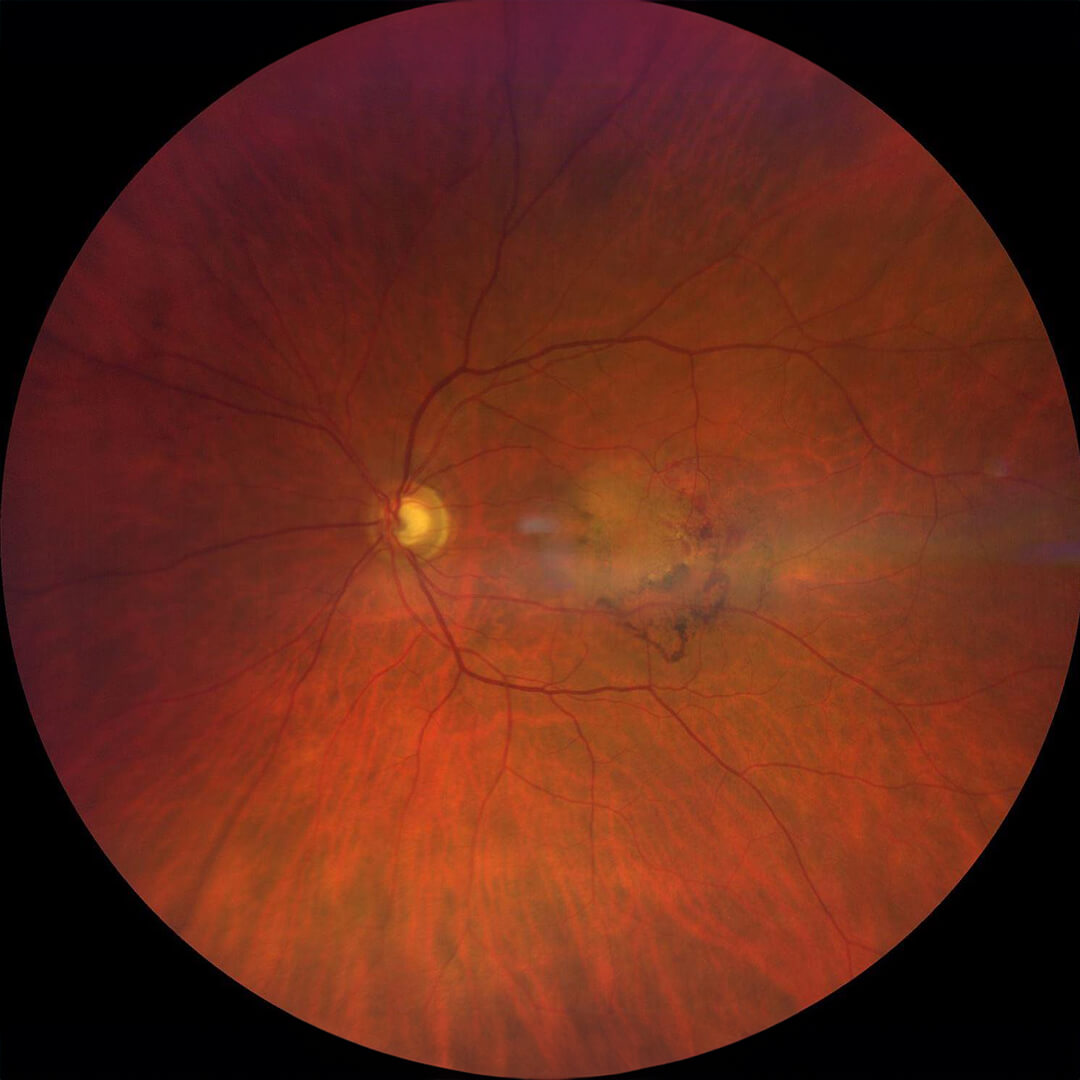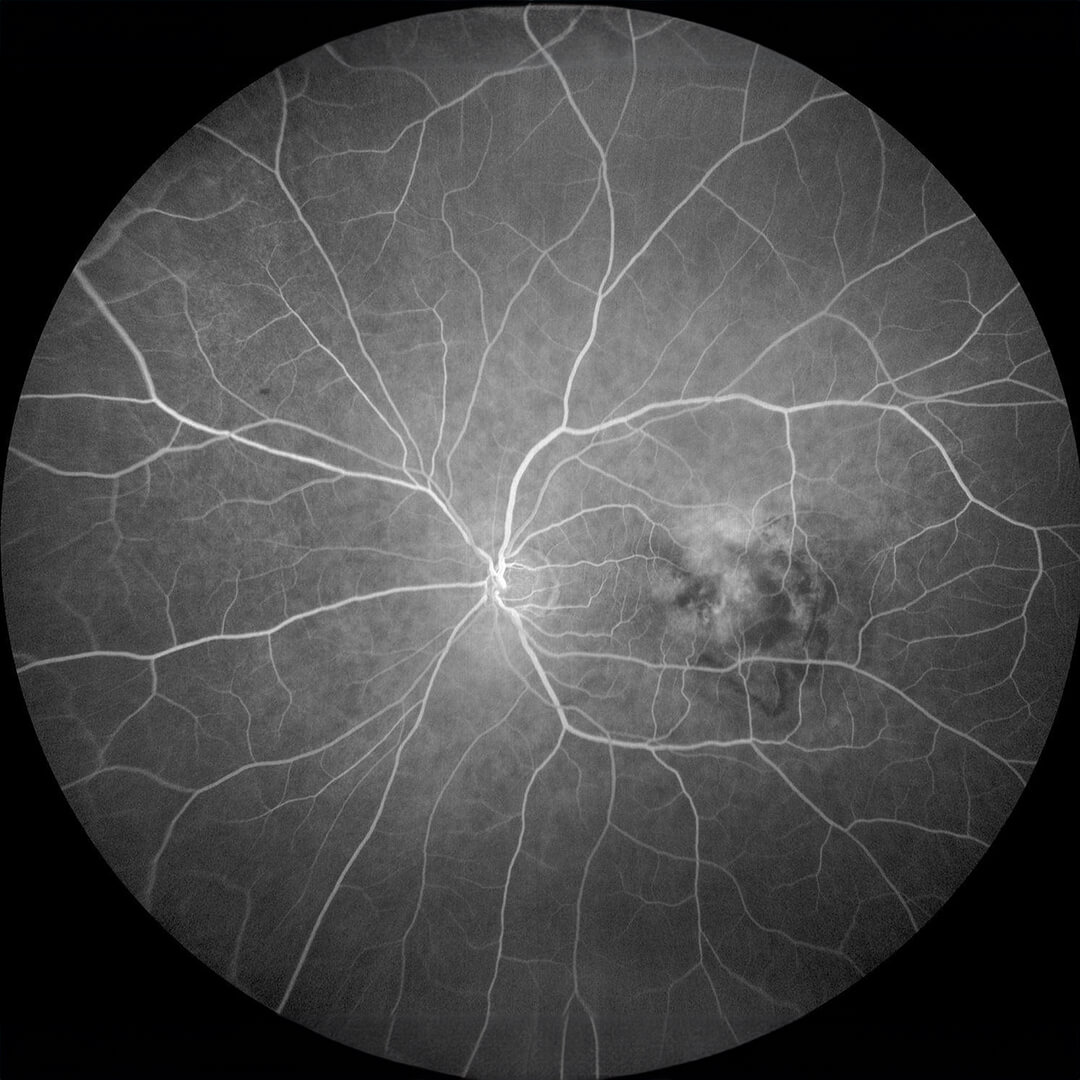Macular Degeneration
Macular Degeneration or Age-Related Macular Degeneration (AMD) is a disease resulting in damage to the macula region of the retina. The macula is the part of the eye that’s responsible for sharp, detailed vision. Macular degeneration is the leading cause of irreversible vision loss among adults over the age of 50 in the United States. More than 10 million Americans are affected by AMD.

Abnormal blood vessels grow beneath the retina, depicted as a hazy gray area in the middle of the picture.
Your macula is used to focus on fine details when you read a book, drive a car, recognize faces, when differentiating between colors and more. With AMD, the sensitive cells in the macula begin to deteriorate, impairing your central vision. While you may not notice vision loss during the early stages of macular degeneration, patients typically experience wavy or blurred vision as the disease gets worse over time.

Dye base test shows leaking from abnormal blood vessels indicated by hazy white patches.
AMD Types, Causes, and Risk Factors
There are two types of AMD: dry (atrophic) and wet (neovascular). AMD always starts as the dry form but can progress to the wet form which is more severe and urgent. The early stages of the dry form may cause only minor changes in your vision emphasizing the importance of regularly scheduled eye exams with your ophthalmologist if you are over the age of 50 and particularly if you have a family history of AMD.
The risk of developing AMD increases with age and there is clearly a genetic component. Other risk factors include smoking, caucasian race, heart disease, and high cholesterol.
AMD Treatment & Prevention
Mild and moderate dry AMD are primarily treated through preventive tactics to help stop the condition from progressing, including a supplement formula known as AREDS 2. The AREDS2 formula includes:
- Vitamin C (500 mg)
- Vitamin E (400 IU)
- Lutein (10 mg)
- Zeaxanthin (2 mg)
- Zinc (80 mg)
- Copper (2 mg)
This formula can be purchased at any drugstore or online. Look for the AREDS2 formula as this is the updated version of AREDS 1. Unfortunately, vitamins do not prevent the onset of AMD and only help once the disease has started. There are a number of other supplements and herbal remedies that are advertised to “prevent” or slow the progression of AMD but these have not been well studied. It would be in your best interest to stay away from these and just take the AREDS 2 formula.
Other habits that may slow the progression of macular degeneration include:
- Eating a healthy diet rich in green leafy vegetables (kale, spinach), in addition to deep yellow, orange or red colored fruits and vegetables
- Stop smoking if you are a current smoker
- Wear sunglasses when outdoors that block ultraviolet A and B waves
Wet macular degeneration is typically treated through intravitreal injections of medications.
